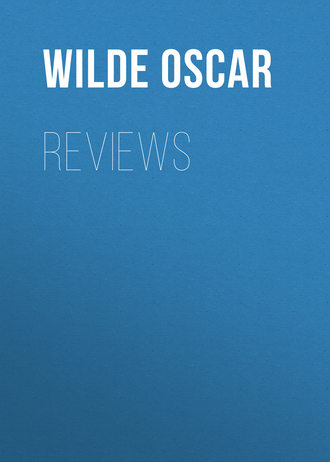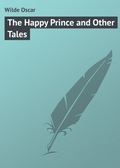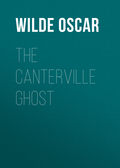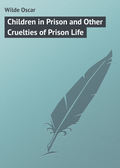
Оскар Уайльд
Reviews
MR. PATER’S LAST VOLUME
(Speaker, March 22, 1890.)
When I first had the privilege – and I count it a very high one – of meeting Mr. Walter Pater, he said to me, smiling, ‘Why do you always write poetry? Why do you not write prose? Prose is so much more difficult.’
It was during my undergraduate days at Oxford; days of lyrical ardour and of studious sonnet-writing; days when one loved the exquisite intricacy and musical repetitions of the ballade, and the villanelle with its linked long-drawn echoes and its curious completeness; days when one solemnly sought to discover the proper temper in which a triolet should be written; delightful days, in which, I am glad to say, there was far more rhyme than reason.
I may frankly confess now that at the time I did not quite comprehend what Mr. Pater really meant; and it was not till I had carefully studied his beautiful and suggestive essays on the Renaissance that I fully realised what a wonderful self-conscious art the art of English prose-writing really is, or may be made to be. Carlyle’s stormy rhetoric, Ruskin’s winged and passionate eloquence, had seemed to me to spring from enthusiasm rather than from art. I do not think I knew then that even prophets correct their proofs. As for Jacobean prose, I thought it too exuberant; and Queen Anne prose appeared to me terribly bald, and irritatingly rational. But Mr. Pater’s essays became to me ‘the golden book of spirit and sense, the holy writ of beauty.’ They are still this to me. It is possible, of course, that I may exaggerate about them. I certainly hope that I do; for where there is no exaggeration there is no love, and where there is no love there is no understanding. It is only about things that do not interest one, that one can give a really unbiassed opinion; and this is no doubt the reason why an unbiassed opinion is always valueless.
But I must not allow this brief notice of Mr. Pater’s new volume to degenerate into an autobiography. I remember being told in America that whenever Margaret Fuller wrote an essay upon Emerson the printers had always to send out to borrow some additional capital ‘I’s,’ and I feel it right to accept this transatlantic warning.
Appreciations, in the fine Latin sense of the word, is the title given by Mr. Pater to his book, which is an exquisite collection of exquisite essays, of delicately wrought works of art – some of them being almost Greek in their purity of outline and perfection of form, others mediæval in their strangeness of colour and passionate suggestion, and all of them absolutely modern, in the true meaning of the term modernity. For he to whom the present is the only thing that is present, knows nothing of the age in which he lives. To realise the nineteenth century one must realise every century that has preceded it, and that has contributed to its making. To know anything about oneself, one must know all about others. There must be no mood with which one cannot sympathise, no dead mode of life that one cannot make alive. The legacies of heredity may make us alter our views of moral responsibility, but they cannot but intensify our sense of the value of Criticism; for the true critic is he who bears within himself the dreams and ideas and feelings of myriad generations, and to whom no form of thought is alien, no emotional impulse obscure.
Perhaps the most interesting, and certainly the least successful, of the essays contained in the present volume is that on Style. It is the most interesting because it is the work of one who speaks with the high authority that comes from the noble realisation of things nobly conceived. It is the least successful, because the subject is too abstract. A true artist like Mr. Pater is most felicitous when he deals with the concrete, whose very limitations give him finer freedom, while they necessitate more intense vision. And yet what a high ideal is contained in these few pages! How good it is for us, in these days of popular education and facile journalism, to be reminded of the real scholarship that is essential to the perfect writer, who, ‘being a true lover of words for their own sake, a minute and constant observer of their physiognomy,’ will avoid what is mere rhetoric, or ostentatious ornament, or negligent misuse of terms, or ineffective surplusage, and will be known by his tact of omission, by his skilful economy of means, by his selection and self-restraint, and perhaps above all by that conscious artistic structure which is the expression of mind in style. I think I have been wrong in saying that the subject is too abstract. In Mr. Pater’s hands it becomes very real to us indeed, and he shows us how, behind the perfection of a man’s style, must lie the passion of a man’s soul.
As one passes to the rest of the volume, one finds essays on Wordsworth and on Coleridge, on Charles Lamb and on Sir Thomas Browne, on some of Shakespeare’s plays and on the English kings that Shakespeare fashioned, on Dante Rossetti, and on William Morris. As that on Wordsworth seems to be Mr. Pater’s last work, so that on the singer of the Defence of Guenevere is certainly his earliest, or almost his earliest, and it is interesting to mark the change that has taken place in his style. This change is, perhaps, at first sight not very apparent. In 1868 we find Mr. Pater writing with the same exquisite care for words, with the same studied music, with the same temper, and something of the same mode of treatment. But, as he goes on, the architecture of the style becomes richer and more complex, the epithet more precise and intellectual. Occasionally one may be inclined to think that there is, here and there, a sentence which is somewhat long, and possibly, if one may venture to say so, a little heavy and cumbersome in movement. But if this be so, it comes from those side-issues suddenly suggested by the idea in its progress, and really revealing the idea more perfectly; or from those felicitous after-thoughts that give a fuller completeness to the central scheme, and yet convey something of the charm of chance; or from a desire to suggest the secondary shades of meaning with all their accumulating effect, and to avoid, it may be, the violence and harshness of too definite and exclusive an opinion. For in matters of art, at any rate, thought is inevitably coloured by emotion, and so is fluid rather than fixed, and, recognising its dependence upon moods and upon the passion of fine moments, will not accept the rigidity of a scientific formula or a theological dogma. The critical pleasure, too, that we receive from tracing, through what may seem the intricacies of a sentence, the working of the constructive intelligence, must not be overlooked. As soon as we have realised the design, everything appears clear and simple. After a time, these long sentences of Mr. Pater’s come to have the charm of an elaborate piece of music, and the unity of such music also.
I have suggested that the essay on Wordsworth is probably the most recent bit of work contained in this volume. If one might choose between so much that is good, I should be inclined to say it is the finest also. The essay on Lamb is curiously suggestive; suggestive, indeed, of a somewhat more tragic, more sombre figure, than men have been wont to think of in connection with the author of the Essays of Elia. It is an interesting aspect under which to regard Lamb, but perhaps he himself would have had some difficulty in recognising the portrait given of him. He had, undoubtedly, great sorrows, or motives for sorrow, but he could console himself at a moment’s notice for the real tragedies of life by reading any one of the Elizabethan tragedies, provided it was in a folio edition. The essay on Sir Thomas Browne is delightful, and has the strange, personal, fanciful charm of the author of the Religio Medici, Mr. Pater often catching the colour and accent and tone of whatever artist, or work of art, he deals with. That on Coleridge, with its insistence on the necessity of the cultivation of the relative, as opposed to the absolute spirit in philosophy and in ethics, and its high appreciation of the poet’s true position in our literature, is in style and substance a very blameless work. Grace of expression and delicate subtlety of thought and phrase, characterise the essays on Shakespeare. But the essay on Wordsworth has a spiritual beauty of its own. It appeals, not to the ordinary Wordsworthian with his uncritical temper, and his gross confusion of ethical and æsthetical problems, but rather to those who desire to separate the gold from the dross, and to reach at the true Wordsworth through the mass of tedious and prosaic work that bears his name, and that serves often to conceal him from us. The presence of an alien element in Wordsworth’s art is, of course, recognised by Mr. Pater, but he touches on it merely from the psychological point of view, pointing out how this quality of higher and lower moods gives the effect in his poetry ‘of a power not altogether his own, or under his control’; a power which comes and goes when it wills, ‘so that the old fancy which made the poet’s art an enthusiasm, a form of divine possession, seems almost true of him.’ Mr. Pater’s earlier essays had their purpurei panni, so eminently suitable for quotation, such as the famous passage on Mona Lisa, and that other in which Botticelli’s strange conception of the Virgin is so strangely set forth. From the present volume it is difficult to select any one passage in preference to another as specially characteristic of Mr. Pater’s treatment. This, however, is worth quoting at length. It contains a truth eminently suitable for our age:
That the end of life is not action but contemplation – being as distinct from doing – a certain disposition of the mind: is, in some shape or other, the principle of all the higher morality. In poetry, in art, if you enter into their true spirit at all, you touch this principle in a measure; these, by their sterility, are a type of beholding for the mere joy of beholding. To treat life in the spirit of art is to make life a thing in which means and ends are identified: to encourage such treatment, the true moral significance of art and poetry. Wordsworth, and other poets who have been like him in ancient or more recent times, are the masters, the experts, in this art of impassioned contemplation. Their work is not to teach lessons, or enforce rules, or even to stimulate us to noble ends, but to withdraw the thoughts for a while from the mere machinery of life, to fix them, with appropriate emotions, on the spectacle of those great facts in man’s existence which no machinery affects, ‘on the great and universal passions of men, the most general and interesting of their occupations, and the entire world of nature’ – on ‘the operations of the elements and the appearances of the visible universe, on storm and sunshine, on the revolutions of the seasons, on cold and heat, on loss of friends and kindred, on injuries and resentments, on gratitude and hope, on fear and sorrow.’ To witness this spectacle with appropriate emotions is the aim of all culture; and of these emotions poetry like Wordsworth’s is a great nourisher and stimulant. He sees nature full of sentiment and excitement; he sees men and women as parts of nature, passionate, excited, in strange grouping and connection with the grandeur and beauty of the natural world: – images, in his own words, ‘of men suffering, amid awful forms and powers.’
Certainly the real secret of Wordsworth has never been better expressed. After having read and reread Mr. Pater’s essay – for it requires re-reading – one returns to the poet’s work with a new sense of joy and wonder, and with something of eager and impassioned expectation. And perhaps this might be roughly taken as the test or touchstone of the finest criticism.
Finally, one cannot help noticing the delicate instinct that has gone to fashion the brief epilogue that ends this delightful volume. The difference between the classical and romantic spirits in art has often, and with much over-emphasis, been discussed. But with what a light sure touch does Mr. Pater write of it! How subtle and certain are his distinctions! If imaginative prose be really the special art of this century, Mr. Pater must rank amongst our century’s most characteristic artists. In certain things he stands almost alone. The age has produced wonderful prose styles, turbid with individualism, and violent with excess of rhetoric. But in Mr. Pater, as in Cardinal Newman, we find the union of personality with perfection. He has no rival in his own sphere, and he has escaped disciples. And this, not because he has not been imitated, but because in art so fine as his there is something that, in its essence, is inimitable.
Appreciations, with an Essay on Style. By Walter Pater, Fellow of Brasenose College. (Macmillan and Co.)
PRIMAVERA
(Pall Mall Gazette, May 24, 1890.)
In the summer term Oxford teaches the exquisite art of idleness, one of the most important things that any University can teach, and possibly as the first-fruits of the dreaming in grey cloister and silent garden, which either makes or mars a man, there has just appeared in that lovely city a dainty and delightful volume of poems by four friends. These new young singers are Mr. Laurence Binyon, who has just gained the Newdigate; Mr. Manmohan Ghose, a young Indian of brilliant scholarship and high literary attainments who gives some culture to Christ Church; Mr. Stephen Phillips, whose recent performance of the Ghost in Hamlet at the Globe Theatre was so admirable in its dignity and elocution; and Mr. Arthur Cripps, of Trinity. Particular interest attaches naturally to Mr. Ghose’s work. Born in India, of purely Indian parentage, he has been brought up entirely in England, and was educated at St. Paul’s School, and his verses show us how quick and subtle are the intellectual sympathies of the Oriental mind, and suggest how close is the bond of union that may some day bind India to us by other methods than those of commerce and military strength.
There is something charming in finding a young Indian using our language with such care for music and words as Mr. Ghose does. Here is one of his songs:
Over thy head, in joyful wanderings
Through heaven’s wide spaces, free,
Birds fly with music in their wings;
And from the blue, rough sea
The fishes flash and leap;
There is a life of loveliest things
O’er thee, so fast asleep.
In the deep West the heavens grow heavenlier,
Eve after eve; and still
The glorious stars remember to appear;
The roses on the hill
Are fragrant as before:
Only thy face, of all that’s dear,
I shall see nevermore!
It has its faults. It has a great many faults. But the lines we have set in italics are lovely. The temper of Keats, the moods of Matthew Arnold, have influenced Mr. Ghose, and what better influence could a beginner have? Here are some stanzas from another of Mr. Ghose’s poems:
Deep-shaded will I lie, and deeper yet
In night, where not a leaf its neighbour knows;
Forget the shining of the stars, forget
The vernal visitation of the rose;
And, far from all delights, prepare my heart’s repose.
‘O crave not silence thou! too soon, too sure,
Shall Autumn come, and through these branches weep:
Some birds shall cease, and flowers no more endure;
And thou beneath the mould unwilling creep,
And silent soon shalt be in that eternal sleep.
‘Green still it is, where that fair goddess strays;
Then follow, till around thee all be sere.
Lose not a vision of her passing face;
Nor miss the sound of her soft robes, that here
Sweep over the wet leaves of the fast-falling year.’
The second line is very beautiful, and the whole shows culture and taste and feeling. Mr. Ghose ought some day to make a name in our literature.
Mr. Stephen Phillips has a more solemn classical Muse. His best work is his Orestes:
Me in far lands did Justice call, cold queen
Among the dead, who, after heat and haste
At length have leisure for her steadfast voice,
That gathers peace from the great deeps of hell.
She call’d me, saying: I heard a cry by night!
Go thou, and question not; within thy halls
My will awaits fulfilment.
…
And she lies there,
My mother! ay, my mother now; O hair
That once I play’d with in these halls! O eyes
That for a moment knew me as I came,
And lighten’d up, and trembled into love;
The next were darkened by my hand! Ah me!
Ye will not look upon me in that world.
Yet thou, perchance, art happier, if thou go’st
Into some land of wind and drifting leaves,
To sleep without a star; but as for me,
Hell hungers, and the restless Furies wait.
Milton, and the method of Greek tragedy are Mr. Phillips’s influences, and again we may say, what better influences could a young singer have? His verse is dignified, and has distinction.
* * * * *
Mr. Cripps is melodious at times, and Mr. Binyon, Oxford’s latest Laureate, shows us in his lyrical ode on Youth that he can handle a difficult metre dexterously, and in this sonnet that he can catch the sweet echoes that sleep in the sonnets of Shakespeare:
I cannot raise my eyelids up from sleep,
But I am visited with thoughts of you;
Slumber has no refreshment half so deep
As the sweet morn, that wakes my heart anew.
I cannot put away life’s trivial care,
But you straightway steal on me with delight:
My purest moments are your mirror fair;
My deepest thought finds you the truth most bright
You are the lovely regent of my mind,
The constant sky to the unresting sea;
Yet, since ’tis you that rule me, I but find
A finer freedom in such tyranny.
Were the world’s anxious kingdoms govern’d so,
Lost were their wrongs, and vanish’d half their woe!
On the whole Primavera is a pleasant little book, and we are glad to welcome it. It is charmingly ‘got up,’ and undergraduates might read it with advantage during lecture hours.
Primavera: Poems. By Four Authors. (Oxford: B. H. Blackwell.)






